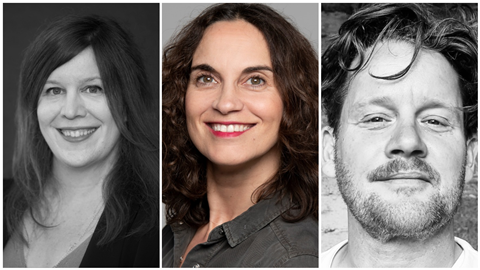French, German and Canadian PSBs foreground guard-rails and creative protection at Sunny Side of the Doc

Commissioners from international factual programming alliance Global Doc have said they would be keen to gradually harness AI in the production process, but only if “keep control of their projects”
Speaking at the Will AI transform international coproductions? panel at Sunny Side of the Doc in La Rochelle today (23 June), representatives from France Télévisions, ZDF and CBC said their overall attitude to the tech was one of restraint and the application of appropriate guard-rails for the industry.
Caroline Behar, the factual-focused head of international co-productions and international acquisitions at France Télévisions, stressed that creators must be able to “keep control of their projects”, if AI is to be brought into the production process.
Her key concerns include safeguarding the accuracy of information broadcast, ensuring the audience always know what footage is AI-generated, and minimising any environmental impact.
Behar also warned that there is still a distinct difference between pitches from creative and those drawn up by AI, revealing France TV is receiving an increasing number of AI-written treatments, which she and her team feel have “no emotion”.
“That is not good for viewers,” she said. “We want emotion.”
If producers use AI in their productions, Behar advises they discuss their processes with the broadcaster early on, so they don’t discover these things “in the moment”, during production.
At CBC, execs are encouraged to cautiously try AI in “small and controlled ways”, according to Lesley Birchard, recently appointed executive in charge of production of the Canadian PSB’s hit factual brand The Nature of Things.
Birchard said she is asking producers to outline their plans for using AI similarly to how they have previously introduced measures for diversity or sustainability behind and in front of the camera.
“How are we going to stay on top of what independent producers are doing and how they’re using AI?” she asked delegates. “We need transparency in that relationship – between broadcaster and producer and between broadcaster and audience.”
Johannes Geiger, commissioning editor for ZDF, said it is “very hard to trust” generative AI in its current form, and warned many AI engines produce “really stereotypical stuff”, and ZDF “can’t do that [for its shows]”.
PBS exec producer Stephanie Carter said the US public broadcaster is “pretty skittish about generative AI in any form”.
“We’re cautious. We’re taking a wait and see perspective. […] We don’t want to jeopardise our audience’s trust,” she added.
Mikael Osterby, head of factual at SVT, said having the confidence of viewers is paramount in the documentary and factual space, commenting: “as a PSB, trust is my main asset,” he said.
NHK senior producer Yuko Fukuyama said the Japanese broadcaster is attempting to create guidelines for AI usage, but noted it is proving “hard to catch up” due to the speed at which the tech is developing.
PSBs bang co-pro drum
Elsewhere, the European broadcasters reiterated the importance of international co-productions to generate scaled programming without putting excessive budgetary pressure on individual broadcasters.
Behar, a leading figure in the Global Doc collaboration, said she is commissioning more international programmes for France TV, and told audiences that, thanks to global co-pros, science programming has “never been so strong” on the French PSB.
Birchard too is “trying to widen the scope of who [CBC] is working with” through co-pros, using the Global Docs template, with an under-wraps project currently “on the go”.








No comments yet